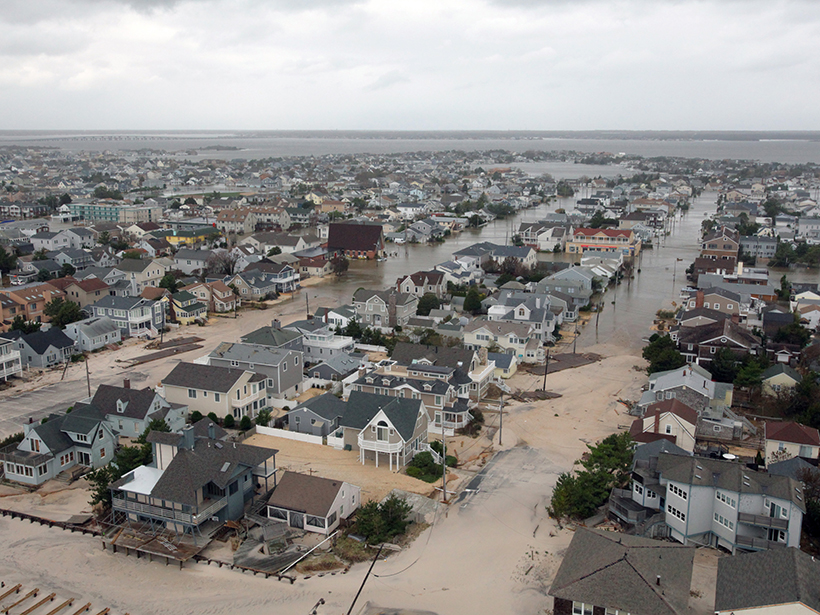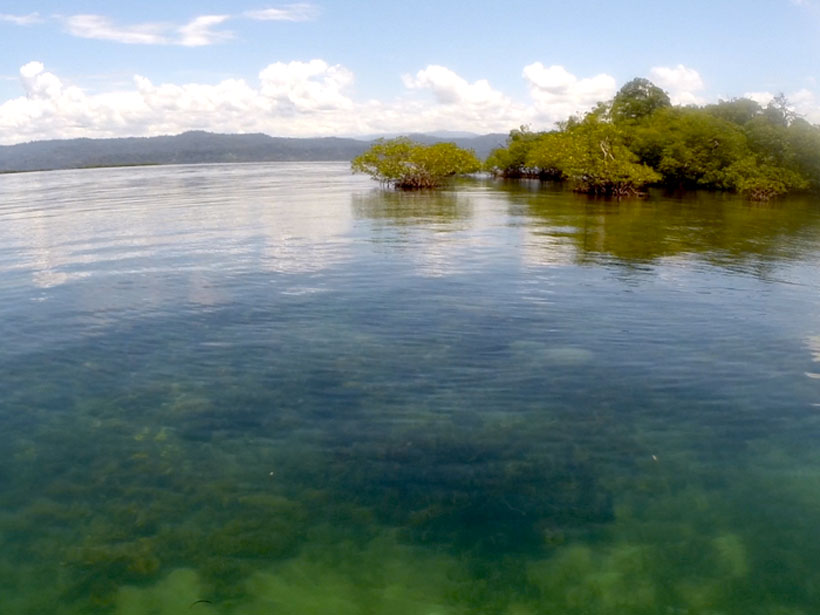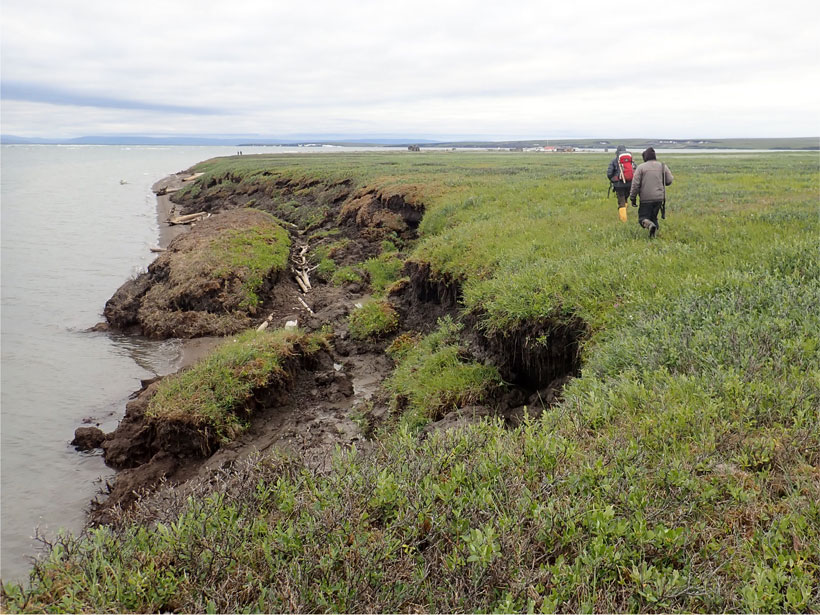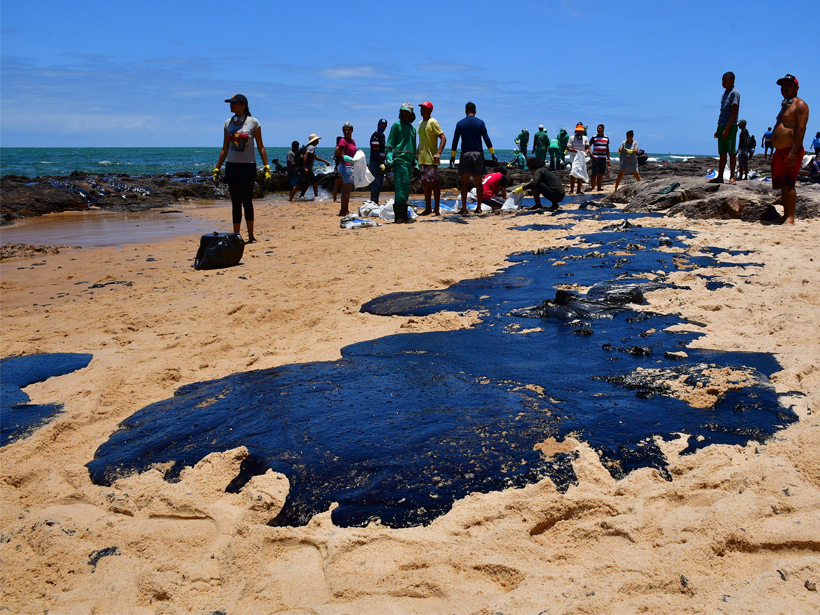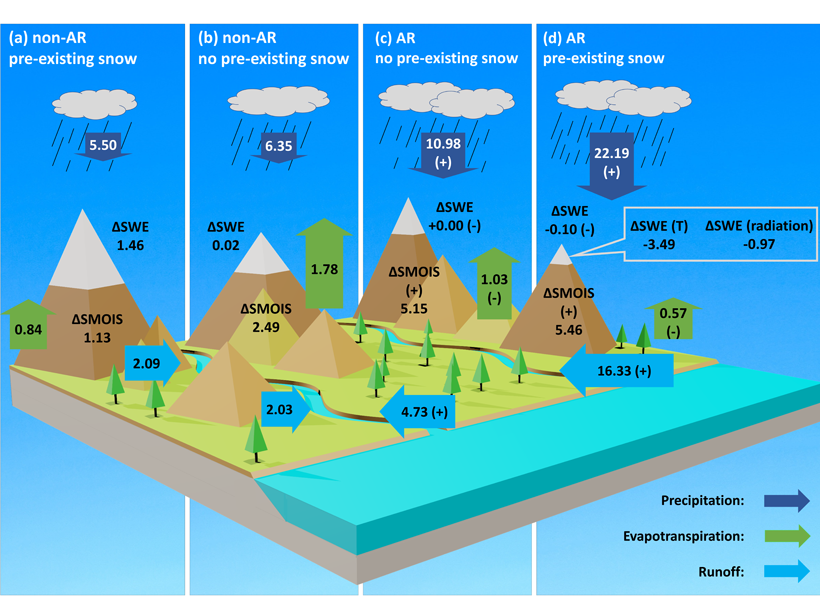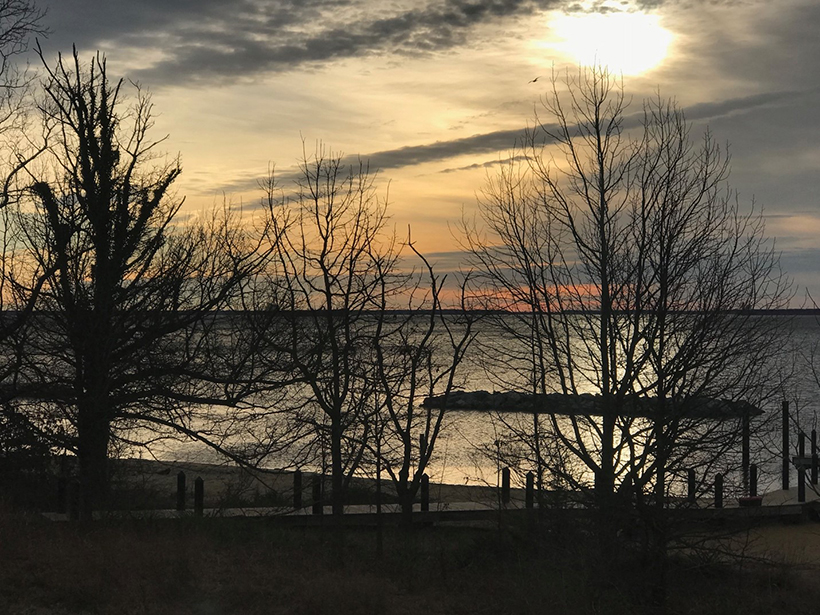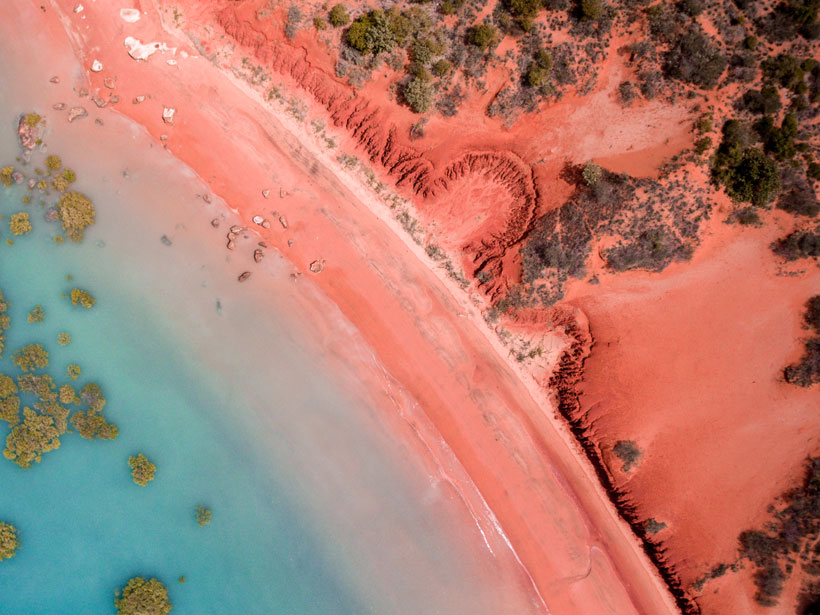A new two-model approach could reduce uncertainties in calculated rates of “blue carbon” accumulation within soils of seagrass, tidal marsh, and mangrove habitats.
beaches, coasts, & shorelines
Sea Level Science Grapples with Uncertainty and Usability
Improved transdisciplinary approaches are needed to ensure that research on rising seas is useful for planning in coastal communities.
Sea Caves Hold Clues to Ancient Storms
Sediments dug up from sea caves help reconstruct past climate, contributing to better storm predictions.
Integrating Global Seagrass and Mangrove Ecosystem Observations
Coordinating the Implementation of Mangrove and Seagrass Essential Observations: A joint GOOS/MBON community outreach workshop to implement EOV/EBVs (Sea Plants Workshop), Consortium for Ocean Leadership; Washington, D.C., 10–11 June 2019
Where Does the Carbon Go When Permafrost Coasts Erode?
Arctic coastlines have not been considered carefully in carbon cycles for long, but new research suggests that eroding permafrost may emit more greenhouse gases than previously thought.
Brazil’s Oil Spill Is a Mystery, so Scientists Try Oil Forensics
Thousands of barrels of oil have been tarring Brazil’s beaches since September, and no one knows why. An oil spill scientist is running oil forensics to find out.
Diverting the Mississippi River May Not Save Louisiana’s Coast
New research finds that man-made river diversions have previously led to land losses.
Hydrological Footprint of Atmospheric Rivers on Land
Atmospheric rivers that make landfall in the western United States have significant impacts on the surface water balance, sharpening the seasonality of water resources in coastal watersheds.
Scientists and Planners Face Challenge of Rising Seas
NASA Sea Level Change Team Meeting; Annapolis, Maryland, 11–13 March 2019
Australia’s Complex Intertidal Zones Mapped in 3-D
Intertidal zones support biodiverse habitats but have lost serious ground in recent decades to development, erosion, and sea level rise.


